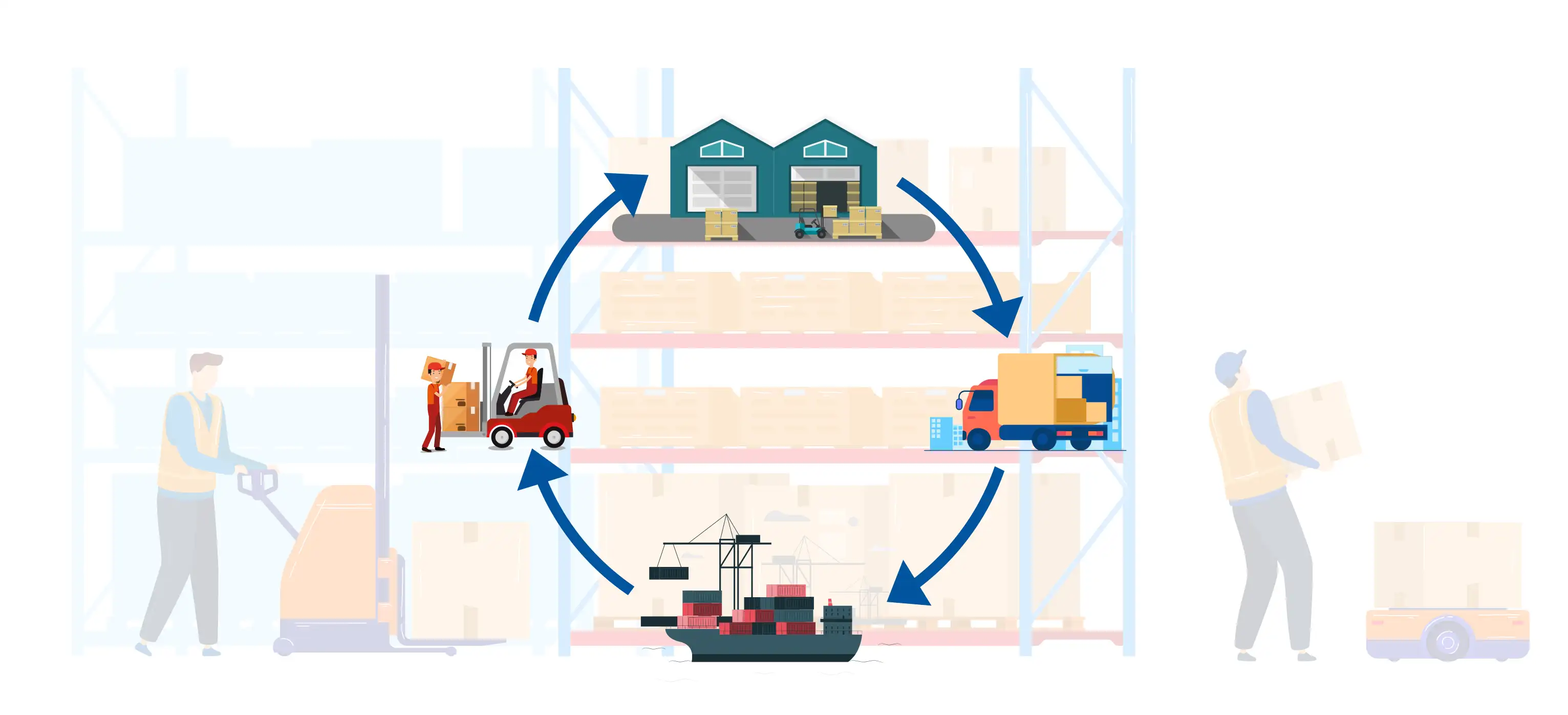 Sujith Kumar
Feb 18, 2025
Sujith Kumar
Feb 18, 2025

In today’s job market, supply chain management is a profession that helps individuals connect, educate and develop the business world. The interlocked disciplines of planning and procurement, logistics analysis, manufacturing, sales and operations, transportation, and distribution create abundant job opportunities.
All organizations desire to create a market position with accelerated growth and higher profits. To achieve such a goal, employers require those professionals who possess the technical and theoretical skills of supply chain management. To get the proper certification, understand the details of the top certificate and how it can help your career. Want to know why supply chain is a great career path and what supply chain management certification to choose? Read on to learn about it all and how to get certified.
Supply chain management is a great career path because of the benefits it possesses, job diversity and security. The wide array of opportunities demands aspiring professionals to be certified under the best supply chain management certification. Some of it which include:
The CPIM (Certified in Planning and Inventory Management) accreditation lets you understand and evaluate company production and inventory operations worldwide. With this certification, you will have a more excellent grasp on production planning, forecasting, master scheduling, material management, and how each of these areas connects to the extended supply chain.
CPIM certification is highly demanded by organisations worldwide. Its core focus is on procurement management, sales and operation planning, performance measurement, and many more. It serves well in manufacturing, healthcare, pharmaceutical, consulting, services, and many other industries.
To earn this certification, pass CPIM Part 1 and CPIM Part 2 exams within three years and maintain this designation. You will need to complete 75 professional development points every five years.
The designation demonstrates your competence in supply chain management best practices. It distinguishes you as an industry expert with specialised, high-level understanding and skills.
CSCP (Certified Supply Chain Professional Certification) is a common standard to help you understand the vocabulary of resources and frameworks for addressing supply chain challenges. You can achieve this certification only if you have three years of relevant experience, a bachelor's degree, or an active CPIM, CPIM-F, CIRM, SCOR-P, CPM, CPSM, CTL or CLTD certification.
You must maintain your certification by passing CSCP’s examination by earning 75 professional development points every five years. You can make those points by actively taking part in supply chain activities in distribution, healthcare, defense, consulting, manufacturing, government, etc.
Read Also:Types Of Job In Supply Chain And Logistics
The Certified Professional In Supply Management (CPSM) is an excellent resource for improving their supply management skills. Experts built the program on analysing functions across industries and addressing workplace complexities because of globalisation or technological advances.
As the globally recognised standard for supply chain management, CPSM certification enables you to be highly skilled in sustainability, strategic sourcing & forecasting, and risk/compliance.
You will need three years of supply management experience in a non-clerical and non-support role with a regionally accredited bachelor's degree. With this eligibility, take and pass three exams. Later, renew your credentials every four years by achieving 60 hours of approved continuing education credits.
Read Also: Why Choose A Career In Logistics And Supply Chain Management?
The certification will give you the skills and recognition to create high-impact supplier diversity outcomes. This is designed for professionals tasked with creating diverse opportunities in their industry and strategic initiatives that are interested in this type of work.
You can take up the two CPSD certification exams if you have the eligibility, three years of supplier diversity or management experience and a bachelor’s degree or five years of relevant work experience. You must complete 50 hours of authorised continuing education credits in three years to keep your certification.
The Council of Supply Chain Management Professionals (CSMP) provides professionals with the opportunity to demonstrate their skills and knowledge of supply chain management. This three-level SCPro certification contains challenging tests designed to evaluate your ability level and provide valuable insight into identifying organisations’ challenges.
To gain the accreditation of CSCMP, you have to go through the eligibility requirements in three tiers. For SCPro level one, you must have at least a bachelor's degree or four years of professional experience in supply chain management.
You should have the level one certification for level two, with either a bachelor's degree and three years of relevant professional experience or seven years of experience in supply chain management. Finally, for SCPro level three, you must have both the previous level’s certification and either a bachelor's degree and five years of relevant professional experience or nine years of experience in supply chain management.
Read Also: Tips to Launch a Successful Supply Chain Career
Certified Professional Logistician (CPL) offered by SOLE (The International Society of Logistics) is a certification that acts as a critical component in industries like commerce, federal and local government agencies, defence and education.
The CPL certification demands you to pass its examination with any of the following eligibility:
Read Also: Project Management Skills
ISSP (International Society of Six Sigma Professionals) offers the Six Sigma certification to promote adoption, advancement, and integration in business. With this accreditation, you can show that you have a solid grasp of the Six Sigma define, measure, analyse, improve, and control (DMAIC) model and fundamentals of lean management.
The Six Sigma Black Belt Certification will equip you with principles of support systems and tools to understand the dynamics of the DMAIC model. To earn this certification, you should have a Six Sigma project with a signed affidavit along with three years of professional experience, or you must complete two projects with signed affidavits.
Supply Chain Operations Reference (SCOR-P) is one of the best supply chain management certifications offered by APICS. Your skills and techniques of the SCOR models are validated. The job market will know you as a professional with the skills to perform metrics business processes and measure the performance of the global supply chain.
To earn the SCOR-P credential, attend a three-day training course followed by corporate training. Only then can you take up the two-hour computerised exam.
Read Also: Importance Of SAP Certification
It is common knowledge that supply chain management is essential to the success of any firm and client's happiness. Businesses enjoy many benefits as certified professionals help in the firm’s progression. Some of the notable benefits obtained through professionals who are accredited with the top supply chain certifications include:
Read Also: Top SAP Certifications
To attain a supply chain management certification, you must fulfill the following prerequisites. Then, you can apply for the top supply chain certification courses and be accredited with the proper eligibility.
Read Also: How Advanced Excel Training Courses Are Helping Your Career Growth?
To Sum Up
There are many top supply chain management certifications, as we have mentioned. To get on the top, this lucrative professional demands a professional certification. This is so because most organizations look for accredited professionals to benefit the firm and provide spotless service to the customers. Attain the eligibility to pursue the best supply chain management certification and strive through to the next bold step of your career.
Read Also:Top Advanced Excel Skills

He is a professional IT Faculty having more than 18 years of experience with Edoxi Training Institute Dubai. He schedules classes into facilities and provides software instructions. He spends most of his free time learning new software skills and also interested in driving and reading.